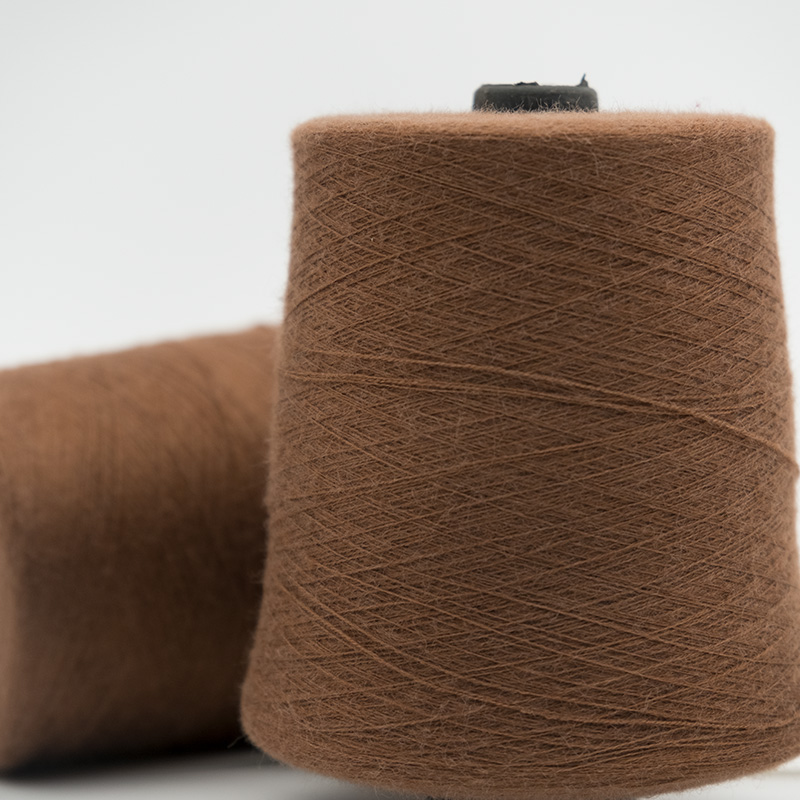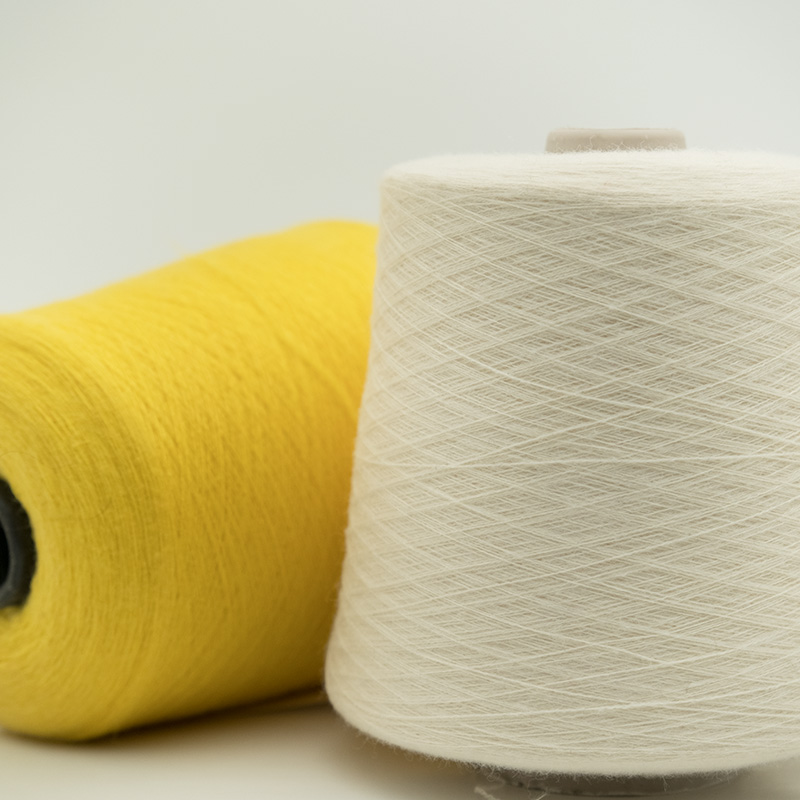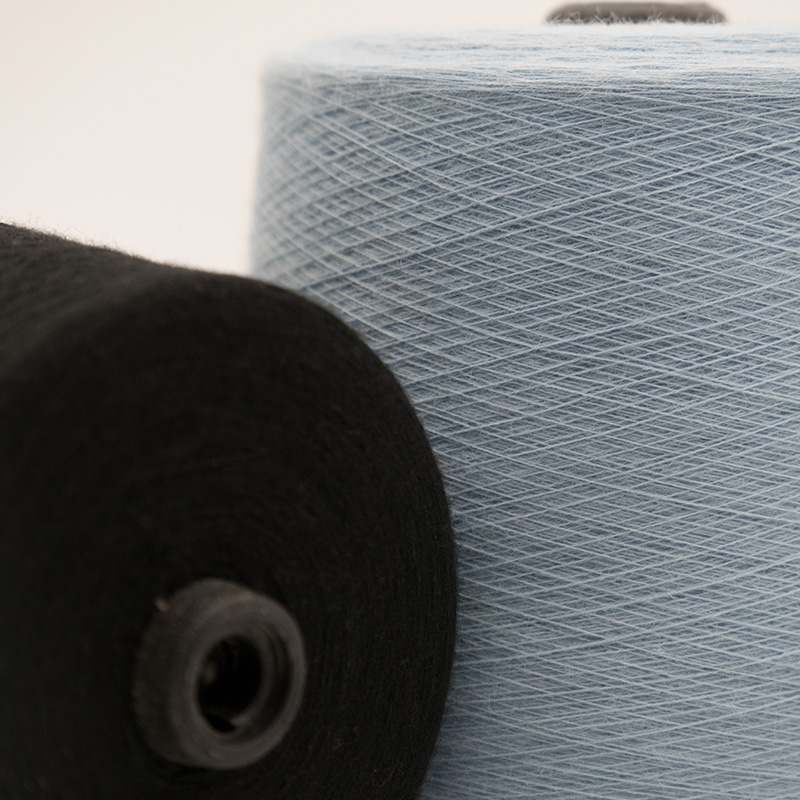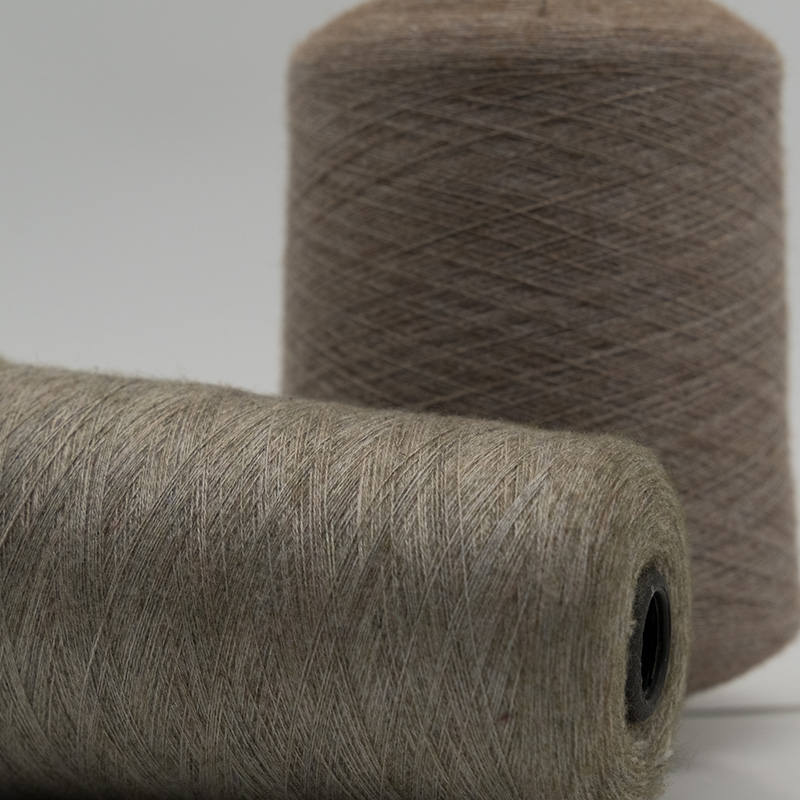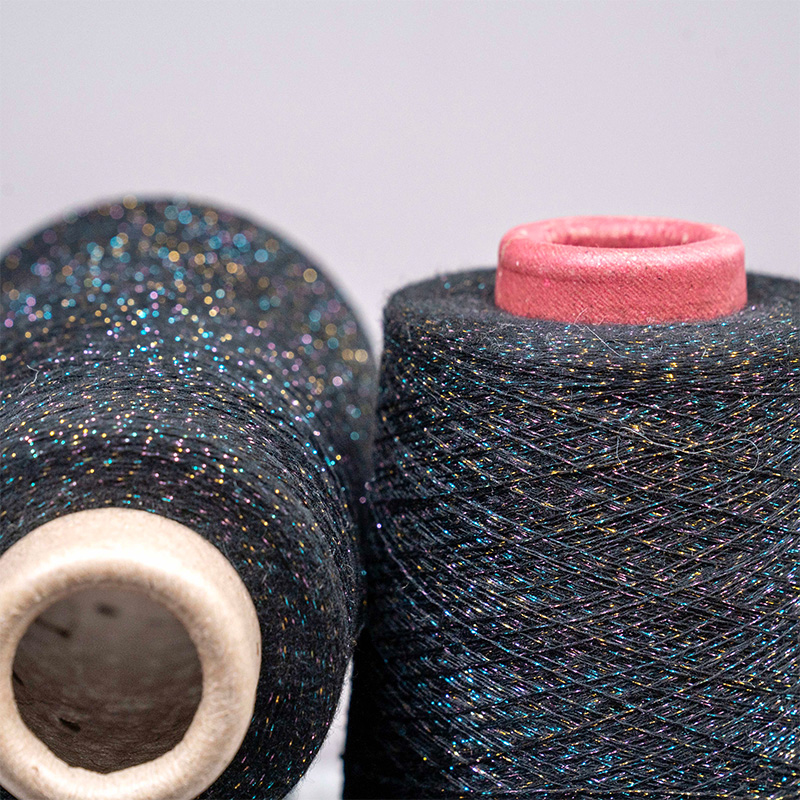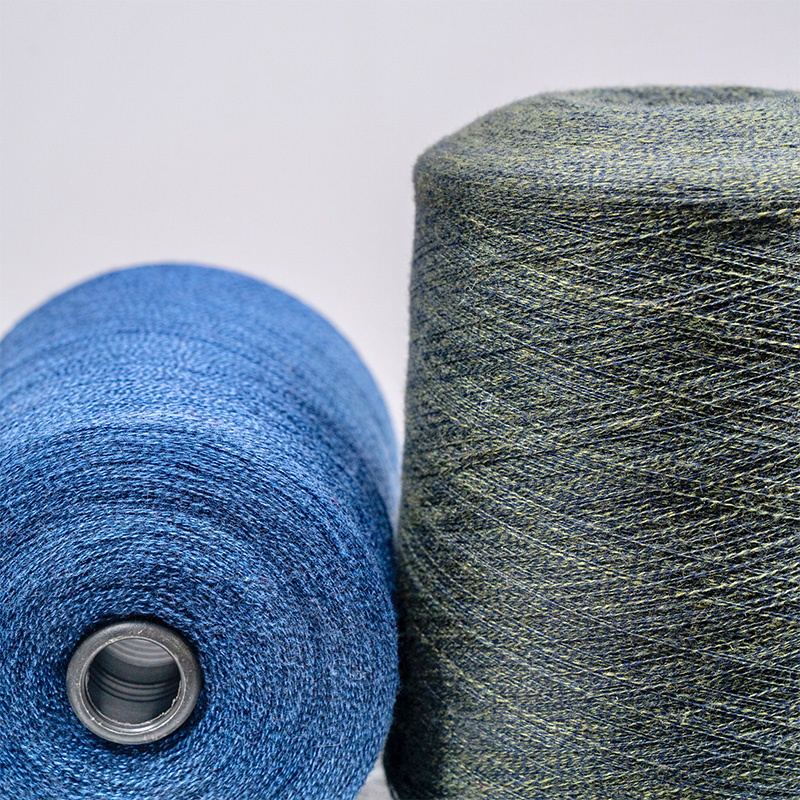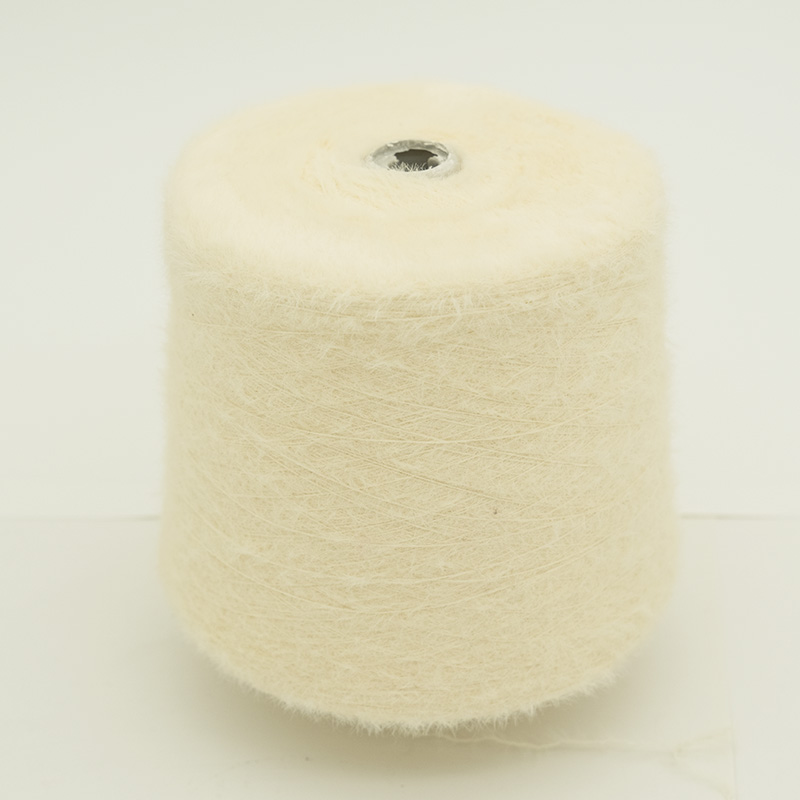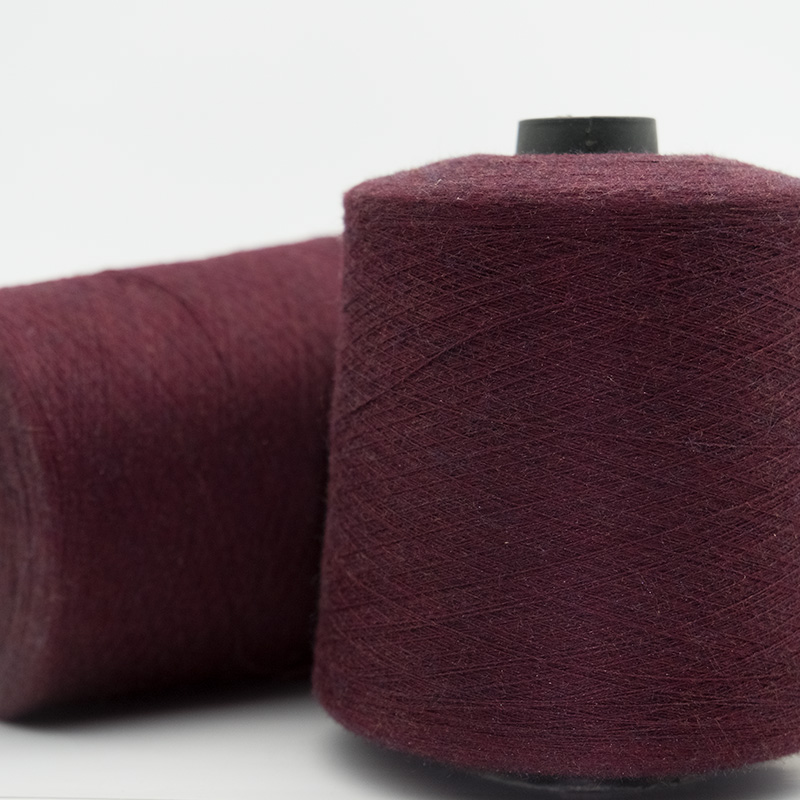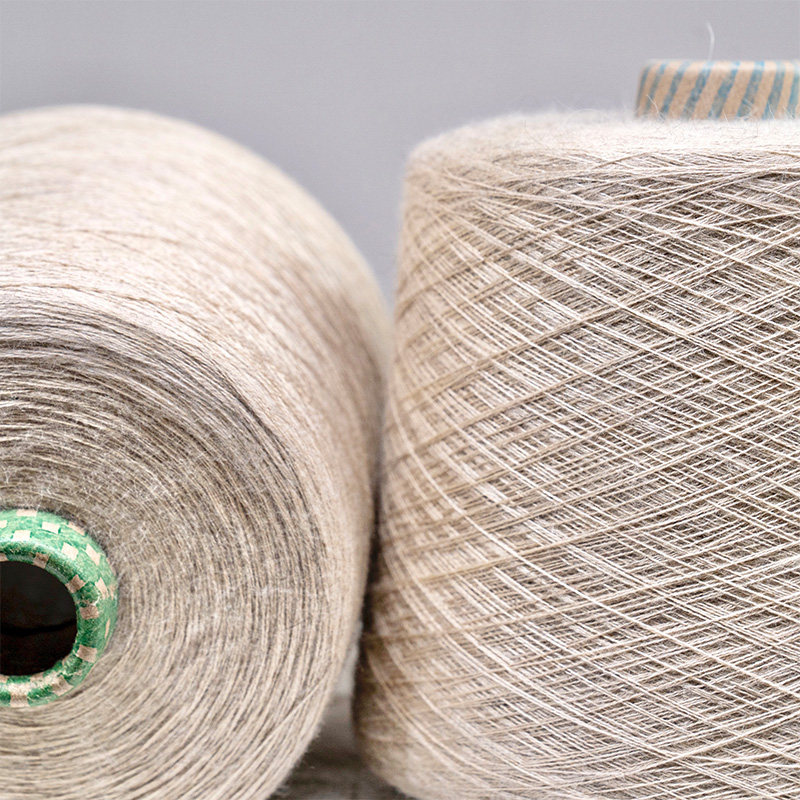What are the key properties of Lyocell and spun silk fibers individually?
Lyocell Fiber:
Softness: Lyocell fibers are known for their exceptional softness, making them comfortable to wear against the skin.
Breathability: Lyocell has excellent moisture absorption properties, allowing it to wick moisture away from the body and keep the wearer cool and dry.
Durability: Despite its soft feel, Lyocell fibers are strong and durable, making them suitable for various applications.
Sustainability: Lyocell is made from wood pulp, typically sourced from sustainably managed forests. Its production process is eco-friendly, utilizing a closed-loop system that minimizes environmental impact.
Smooth Texture: Lyocell fibers have a smooth surface, giving fabrics a luxurious appearance and feel.
Biodegradability: Lyocell/spun silk core-spun yarn is biodegradable, meaning it can naturally decompose at the end of its lifecycle, reducing environmental pollution.
Spun Silk Fiber:
Luster: Silk fibers have a natural luster that gives fabrics a beautiful, shiny appearance.
Softness: Silk is renowned for its luxurious softness, often described as "silky smooth" to the touch.
Strength: Despite its delicate feel, silk is one of the strongest natural fibers, making it highly durable.
Moisture Absorption: Silk fibers can absorb moisture without feeling damp, making them comfortable to wear in both warm and cool climates.
Hypoallergenic: Silk is naturally hypoallergenic, making it an excellent choice for individuals with sensitive skin or allergies.
Regulation of Body Temperature: Silk has the ability to regulate body temperature, keeping the wearer cool in summer and warm in winter.
Are Lyocell and silk considered sustainable fibers, and how does that factor into the yarn's production?
Lyocell is often regarded as one of the most environmentally friendly fibers available. It's made from cellulose extracted from wood pulp, typically sourced from fast-growing, renewable eucalyptus or bamboo trees. The production process involves a closed-loop system, where solvents used to dissolve the wood pulp are recycled and reused, minimizing waste and environmental impact. Additionally, the wood pulp used in Lyocell production is often sourced from sustainably managed forests certified by organizations like the Forest Stewardship Council (FSC).
Silk is a natural fiber produced by silkworms, and its sustainability depends on various factors. Traditional silk production involves the harvesting of silkworm cocoons, which typically results in the death of the silkworm. However, there are ethical and sustainable silk production methods, such as peace silk (also known as ahimsa silk), which allows the silkworm to complete its life cycle and emerge from the cocoon naturally before the silk is harvested. Additionally, silk is biodegradable and can be produced with minimal chemical inputs, further enhancing its sustainability credentials.
Factors in Yarn Production:
In the production of Lyocell/spun silk core-spun yarn, the sustainability of both fibers is likely considered in several ways:
Sourcing: The manufacturers may source Lyocell from certified sustainable forests and silk from ethical and responsible producers. This ensures that the raw materials used in the yarn are environmentally friendly and ethically sourced.
Production Process: The production process for both Lyocell and silk fibers is typically designed to minimize environmental impact. For Lyocell, the closed-loop system ensures that solvents and chemicals used in the process are recycled, reducing waste and pollution. Ethical silk production methods may also be employed to minimize harm to silkworms and reduce chemical usage.
Certifications: Yarn manufacturers may obtain certifications such as the Global Organic Textile Standard (GOTS) or OEKO-TEX Standard 100, which verify that the yarn meets specific environmental and social criteria throughout its production chain.



 English
English русский
русский Español
Español 中文简体
中文简体


